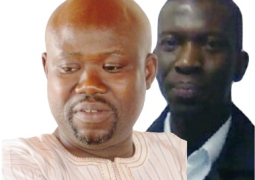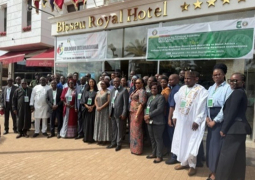
Lawmakers’ comments came in the wake of Finance and Economic Affairs Minister Seedy Keita tabled the Oral Ministerial Statement on the Implementation and Monitoring of the Annual Budget on Monday.
The statement, meant to provide insights into how approved allocations were disbursed and monitored, was reportedly submitted just minutes before the minister’s presentation—an act many lawmakers condemned as unacceptable.
Hon. Sainey Jawara, the Member for Lower Saloum, said: “The document was submitted to us 10 minutes before the reading of the statement. This is undone and shouldn’t be,” he said. “The budget is a ministerial and departmental agencies’ budget. We expect the minister to tell us how much a particular ministry spent and on what. We’ve received complaints from ministries about not receiving their allocations, which contradicts the minister’s claims.”
Hon. Fatoumatta Njai, the Member for Banjul South, also emphasised that the statement should focus on implementation and monitoring. She urged the minister to provide a comprehensive breakdown of individual ministry expenditures to enable committees to carry out proper oversight.
“We need to ensure that the approved allocations are given accordingly. Without the necessary breakdown, our monitoring functions are compromised,” she said.
Hon. Lamin Ceesay, the Member for Kiang West, argued that the statement lacked substance and failed to go beyond mere figures.
“We’re still being presented with figures during both budget sessions and implementation reports. It’s time we move towards impact-based reporting. We need to understand how funds were disbursed, how they were used, and the real impact on the people,” Ceesay stated.
“This will prevent ministries from continuing to complain about not receiving their appropriate allocations.”
Other members pushed for the improvement of transparency and accountability in the country’s public financial management processes with many demanding timely submissions and detailed, impact-oriented reporting to ensure funds are being used effectively for national development.




